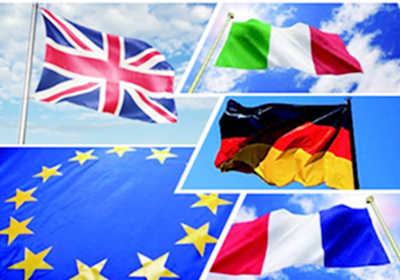
United Kingdom
To alleviate the economic dilemma of self-employment for the Covid-19 outbreak, the UK government announced on March 26th, 2020 Self-Employment Income Support Scheme (SEISS). Starting from March 2020, 80% of monthly income will be provided to the self-employed, with a monthly limit of 2500 pounds, tentatively for three months, depending on the development of the pandemic. According to statistics from the National Bureau of Statistics (ONS), more than 5 million people in the UK are self-employed, accounting for 15% of the total UK workforce. The government expects that the Income Support Scheme (SEISS) will cover 95% of the UK ’s self-employment. The Self-Employment Income Support Program (SEISS) has precise requirements for applicants: they are currently in self-employment and will continue to do so in the coming year; they can provide tax payment certificates for 2018 and 2019 (as an evidence of normal income, while avoiding the temporary conversion to the self-employment); more than half of personal income comes from the self-employment; the average annual income in 2016-2019 is less than 50,000 pounds (to avoid high-income self-employed from occupying this benefit). This plan does not apply to individuals who conduct personal operations with a company structure. The UK Taxation and Customs Administration (HMRC) will calculate the average monthly income by integrating the taxable income of the self-employed in the past three years and will contact the qualified personnel to report the specific amount of the subsidy. It is estimated that the cash subsidy will not be into the applicant’s bank account until the end of June.
Those who have been engaged in self-employment for less than one year cannot enjoy this subsidy. They can apply for a “Universal Credit” for temporarily unemployed and low-income people, and receive a basic living allowance of around £ 400 per month. The income tax before June-July 2020 can be deferred to January 2021 for the self-employed. If the spouse of a self-employee does not have the income and there are more than two children at home, living in low-rent housing, social benefits of £ 1800 per month can be applied.
Italy
On March 16th, the Italian government announced an aid plan of 25 billion euros to mitigate the impact of the epidemic on the economy. Among them, a fund of 300 million euros was established to help the employees and the self-employed whose businesses were affected by the outbreak of coronavirus. They can receive a monthly allowance of 600 euros for three months.
Besides, the self-employed who lost less than more than one-third of the income in the first quarter can apply to defer the payment of the mortgage for the first house purchase until the situation gets better. At the same time, for enterprise employees and the self-employed, if they have children under the age of 12, they can apply for a special leave of 15 days, and the government pays 40% of their salary.
France
Since 2017, France has developed a plan for the self-employed (non-agricultural) in the social security system, aimed at improving the social protection of self-employed, simplifying procedures and improving the quality of services. According to this plan, the self-employed can enjoy medical insurance with the same personal payment rate and reimbursement rate as corporate employees. Those who have been insured for more than one year and have not arrears in premiums and are recommended by doctors to take sick leave due to illness or accidents will receive the allowance. All the self-employed must pay family subsidy premiums so that their families can enjoy the same treatment as the family members of enterprise employees, including child care costs, housing and other benefits.
In response to the epidemic, the French government announced on March 30th that as part of the government assistance program, a 2-billion-euro Fond de Solidarite was established to provide financial support for small and micro enterprises and the self-employed. There are some requirements for the self-employed: the income is below 40,000 euros in 2019, the business is temporarily suspended due to the government’s order or in severely damaged industries, and income between February 21st and March 31st is 70% lower than the same period of last year. 1500 euros per month can be applied continuously for three months through the Fond de Solidarite.
Germany
On March 27th, the German government introduced an aid program to alleviate the impact of the outbreak of Covid-19. One of the main goals of the assistance program is to help the self-employed and small businesses overcome difficulties, including three forms of support: short-term allowances which the applications need to be verified by the Federal Labor Office; financial aid, the self-employed can directly contact the tax agency or representative for access; liquidity assistance, apply to the commercial partners of the German Bank for Reconstruction and Credit, and the official partners are found in the region on the KfW website. The assistance plan specifically sets up a fund of 50 billion euros for small businesses and the self-employed, and according to the specific losses, the self-employed can get the monthly subsidies up to 9000 euros for three months.
In addition, the government has launched a plan dedicated to supporting small enterprises and the self-employed in the cultural industry with a total budget of 50 billion euros. Among them, the self-employed, such as art workers and professional photographers, can receive about 9000 per month for continuously three months.
EU
To reduce the impact of the Covid-19 on the economy, the European Commission announced on March 13th that it had formulated a coordinated response measure, which uses the European Globalization Adjustment Fund to support the unemployed and the self-employed with reduced income due to the outbreak. The available funds are 179 million euros in 2020. In the document “A European instrument for temporary Support to mitigate Unemployment Risks in an Emergency (SURE) after the outbreak of the new coronary pneumonia epidemic” announced on April 2nd, the European Union included the self-employed who lost their jobs in the assistance.